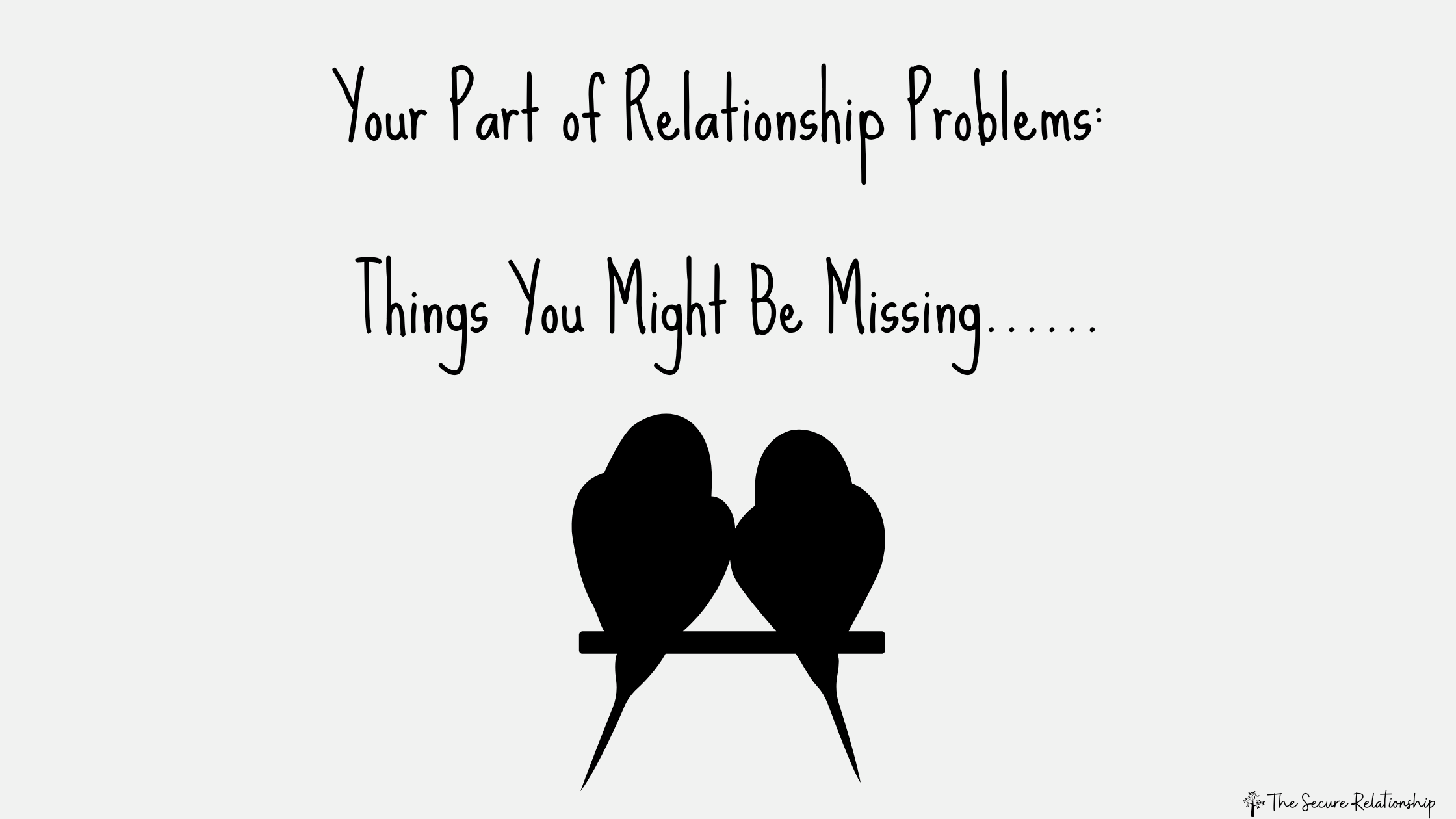Your Part in Relationship Problems: Things You Might Be Missing
Your Part in Relationship Problems: Things You Might Be Missing
Relationships can bring immense joy and connection, but they can also spark confusion and conflict. Often, the less-discussed aspects of relationship struggles stem from internal conflicts—like questioning what you deserve. Let’s explore this theme, uncover common pitfalls, and identify strategies to address them.
The Inner Conflict About Deserving
Have you ever wondered if you truly deserve the emotional connection and healthy communication you crave in your relationship? Many people struggle with feelings of unworthiness, doubting whether their needs are valid or "too much."
This internal conflict can lead to a cycle of suppressing your needs and then expressing them reactively. Even if your partner isn’t meeting your expectations, it’s worth asking:
Am I showing up for myself in the way I need?
When you’re caught in this cycle, your nervous system knows you deserve to have your needs met, but emotional reactivity can take over. Breaking this pattern begins with self-reflection and an honest commitment to honoring your needs.
Taking Ownership of Your Needs
To shift out of this dynamic, start by clarifying your needs and taking ownership of them. When you resolve your inner conflict about deserving, you empower yourself to advocate assertively rather than reacting with protest or frustration.
Approaching Your Partner Without Blame
Blaming your partner may feel satisfying in the moment, but it often escalates into a cycle of conflict. Instead, focus on expressing your needs with statements like:
“I feel disconnected when we avoid talking about this. It’s important to me to feel heard.”
By taking ownership of your emotions and avoiding criticism, you create an environment for meaningful dialogue rather than defensiveness.
The Role of Blame
Blame is a common fallback when relationships hit rough patches. It’s easy to think:
“I’ve done everything I can; this must be my partner’s fault.”
While your partner may contribute to the challenges, staying in a blame mindset can prevent you from examining your own role. Letting go of blame isn’t about excusing their behavior; it’s about freeing yourself to address the dynamic constructively.
Ask Yourself:
“Is holding onto blame preventing me from seeing my part in the relationship’s challenges?”
Recognizing your role doesn’t mean taking all the responsibility—it means finding balance and focusing on solutions.
Standing Up for Yourself
Avoiding conflict might feel easier in the short term, but it can lead to resentment if your needs remain unaddressed. Standing up for yourself is essential for a healthy relationship.
For example, you might say:
“I respect your perspective, but it’s important to me that my needs are heard, too. Feeling safe and connected requires knowing there’s space for both of us.”
If your partner is used to a rigid dynamic, it may take time and repeated conversations for them to recognize the seriousness of your boundaries. Be patient but consistent.
Avoiding Overly Blaming Yourself
On the other hand, taking too much blame for relationship problems can be equally harmful. While self-reflection is valuable, believing you’re solely at fault can prevent you from holding your partner accountable.
A Balanced Approach:
Acknowledge your imperfections: “I know I’m not perfect and I’m open to discussing my role…”
Advocate for your needs: “…but I’d also like to focus on this concern I have.”
This framing allows for constructive conversation without placing all the responsibility on yourself or your partner.
Conclusion: Finding Balance in Relationships
Healthy relationships require self-awareness, mutual respect, and open communication. By addressing your inner conflicts, letting go of blame, and standing up for yourself, you can create healthier dynamics and deeper connections.
If you’re struggling to find balance, consider exploring resources like therapy or relationship workshops that focus on enhancing communication and emotional awareness.
Explore More Resources for Building Healthy Relationships
Attend Julie Menanno’s Workshops: The Secure Relationship Workshops
Listen to The Secure Love Podcast: Secure Love Podcast
Order Julie’s Book: Order Secure Love
Remember, every step you take toward understanding yourself and your partner helps strengthen your connection. A thriving relationship is built on mutual understanding, communication, and a willingness to grow together.
“Letting go of blame and advocating for your needs paves the way for healthier relationship dynamics.”



Discover why self regulation might feel out of reach, the barriers that hinder it, and actionable steps to build emotional resilience and connection.